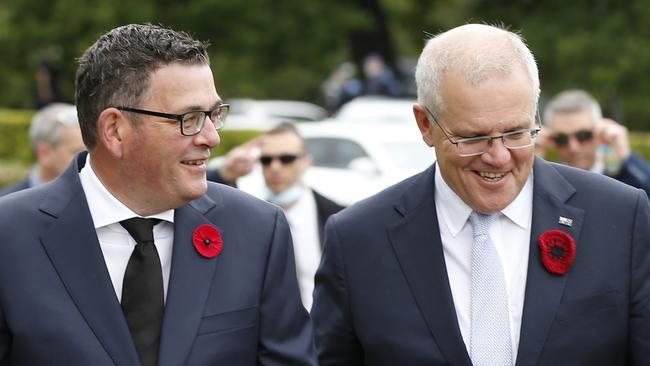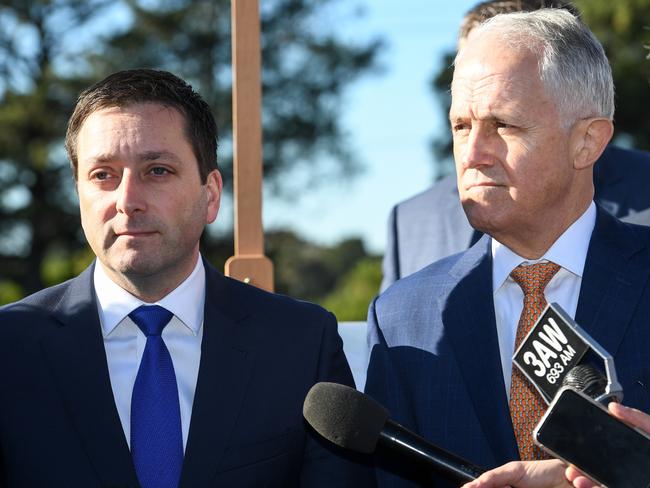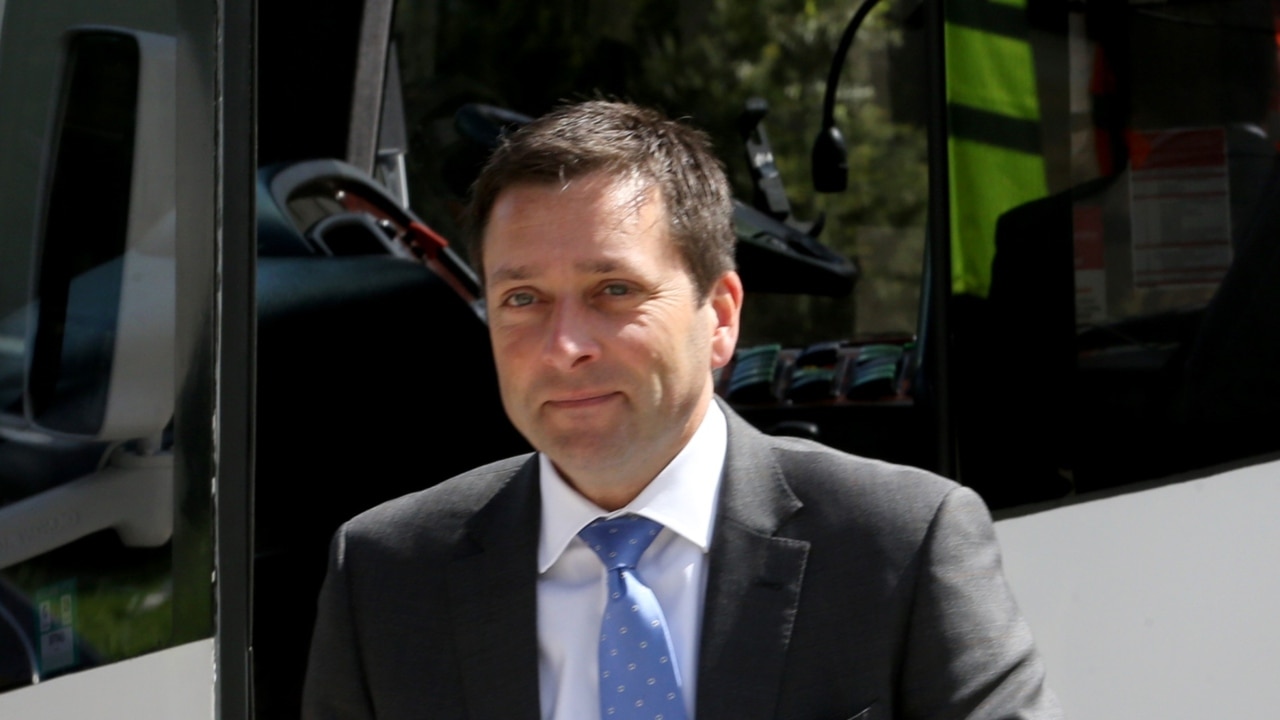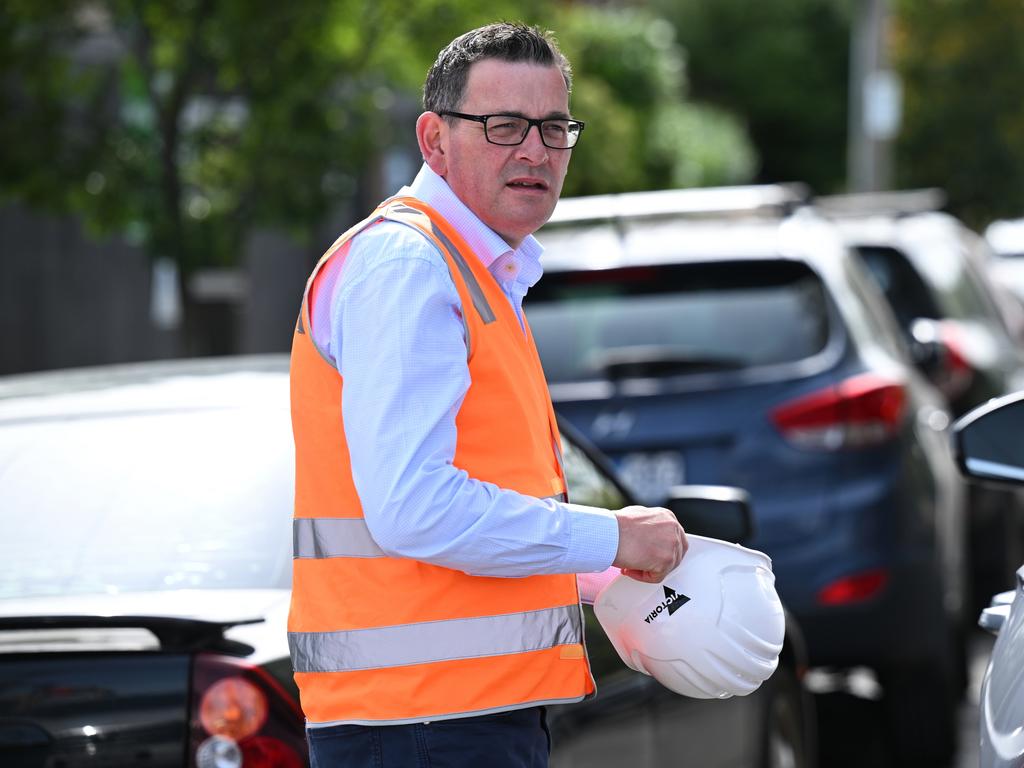
Former Liberal prime minister Malcolm Turnbull reckons he knows exactly what’s to blame. “The Liberal Party,” he declared, “has been taken over by the hard right and is therefore at odds with the electorate whose support it seeks.” The Victorian Libs taken over by the hard right? Really?
Any Turnbull analysis always involves an element of special pleading as he’s still blaming his loss of the prime ministership on a right-wing coup. His argument for being leader was always that he was the Liberal who most appealed to Labor voters.
The trouble was that being the Liberal leader who most resembled Labor usually lost more Liberal votes than gained Labor ones. His loss of 14 seats in his only election as Liberal leader in 2016 is fact-based proof, as opposed to his own revisionism, that when the Liberals run on a Labor-lite agenda they lose. And the Turnbull rout is backed up by similar losses under “moderate” Liberal leaders: in South Australia under Steven Marshall, Western Australia under Zac Kirkup and, of course, Victoria last weekend under Matthew Guy.
As Turnbull implies, a hard-right party would indeed struggle to win. His mistake, though, is that there’s not a shred of evidence on which to convict the Victorian Liberal Party of this offence.

During the past eight years in opposition, the Victorian Liberals had failed to oppose the cancellation of the East-West Link that they’d initiated in government, even though that was Labor spending $1bn-plus not to build a road. They’d failed, until almost the end, to oppose any of Labor’s pandemic lockdowns even though these were among the harshest in the world. And given the way Scott Morrison backed in Daniel Andrews time and time again, the overall Liberal brand suffered, with natural Liberal supporters feeling abandoned.
On cultural issues, the Liberal opposition also supported Labor’s laws allowing people to change their gender annually and to criminalise any attempt to dissuade them. They’d backed Labor’s creation of a First Peoples’ Assembly to negotiate treaties between the state government and Indigenous clans. They’d never opposed Labor’s plans for supposedly safe injecting rooms or questioned Labor’s support for gender fluidity programs in schools. They’d expelled from the state Coalition partyroom a long-serving MP because he was anti-abortion and they’d banned from the partyroom, should she be elected, a candidate whose father was a member of a conservative Christian church – despite being a party that’s supposed to believe in freedom of speech and freedom of religion.
Perhaps worst of all, they had no credible plan to cut spending and to reduce debt even though, under Labor, Victoria’s debt was forecast to exceed the combined debt of all the other east coast states.
The Victorian Liberals’ climate policy was more green than federal Labor’s: a 50 per cent emissions cut by 2030. Like Labor, the Victorian Libs had pledged to expand onshore gas extraction (although not to allow fracking) but they’d insisted that any new gas discoveries would be 100 per cent reserved for local use as an immediate disincentive for investors. And their key election pitch was to spend $20bn (redirected from a rail project) on building new hospitals (not to run them better) and to reduce all metropolitan rail, tram and bus fares to just $2. Whatever their merits, there was nothing philosophically Liberal here or that created a sharp policy distinction with Labor.
It’s difficult to see how even Turnbull could have detected a hard-right agenda in this.
And the result? Despite a 6 per cent primary vote swing against Labor, there was only a 3 per cent two-party-preferred swing to the Coalition (although the Nationals did pick up three country seats including wins back from independents) so the overall balance was almost unchanged.
Not just in Victoria but right around Australia, the consistent record of the past few years is that when it’s Labor-lite, the Coalition loses, regardless of whether it’s in government or in opposition.

In South Australia, the Marshall government lost after just one term, despite improving the economy, because it had no distinctive second-term agenda and preferred elitist projects such as more arts precincts to voter-friendly initiatives such as the V8 Supercars.
In Western Australia, where the Liberals tried to out-green the Greens by promising to close down the last coal-fired power station by 2025, they were reduced to just two seats in the lower house, with the Nationals as the official opposition.
And in Canberra, with no fourth-term agenda to speak of, and having presided over pandemic-driven levels of debt and government control unprecedented outside wartime, the Morrison government ebbed out of office to a Labor Party that got away with promising “safe change” even though its leftist instincts were always glaringly obvious.
By contrast, whenever the Liberals have been clearly different from Labor, they’ve done well.
In 2010, when the Coalition campaigned against Labor’s “great big new tax on everything” emissions trading scheme, a first-term Labor government lost its majority. In 2013, the Coalition had a thumping victory punishing Labor for its carbon tax, border protection failures and GFC-excused spending spree. And in 2019 the Coalition had a “miracle win” campaigning against Labor’s new taxes on retirees and investors and its coal industry-killing emissions reduction policy (which the Coalition subsequently partially adopted via net zero).
Right now it’s probably right that the Coalition needs to do more to appeal to younger voters and to professional women – demographics that were formerly but are no longer supportive – but not simply by aping Labor policies. The Coalition could do an extended version of its 11th hour super-for-homes election policy for younger voters, plus a version of Tony Abbott’s paid parental leave scheme based on actual wages to appeal to professional women, in preference to Labor’s pitch on climate and identity politics. It would be an appeal to Labor’s current demographic but one based on Liberal values rather than a surrender to Labor ideology.
The lesson of repeated experience is that the Liberals succeed best when they’re a clear contrast to Labor. And where they are a clear contrast to Labor, they limit the appeal of minor parties on the centre right. This is critical in our preferential voting system because, unlike Greens preference flows that routinely return to Labor as high as 80 per cent of the time, the Liberals do not get a uniform return of preferences from minor parties on the centre right.
Still, no one should write off the Liberals. Despite the challenges of our preference system, the left media bias and the union millions funding Labor, the Coalition still garners a solid primary vote at least in the federal arena. But this vote is always tested when the Liberals try to be all things to all people, dancing with the left, and then wondering why its supporters look to minor parties on the right when disappointed with their lack of Menzian clarity.
If the Liberals keep forgetting about the forgotten people, believe me, they’ll be forgotten too.







There’s no argument that the Liberal Party has had a very bad loss in Victoria, made more bitter by its inability to shift the most inept and ethically challenged government in the country. The squabble, with federal ramifications too, will be over what caused this disaster, and whether it’s because the Libs have become Labor-lite or whether they’re still not left-wing enough.